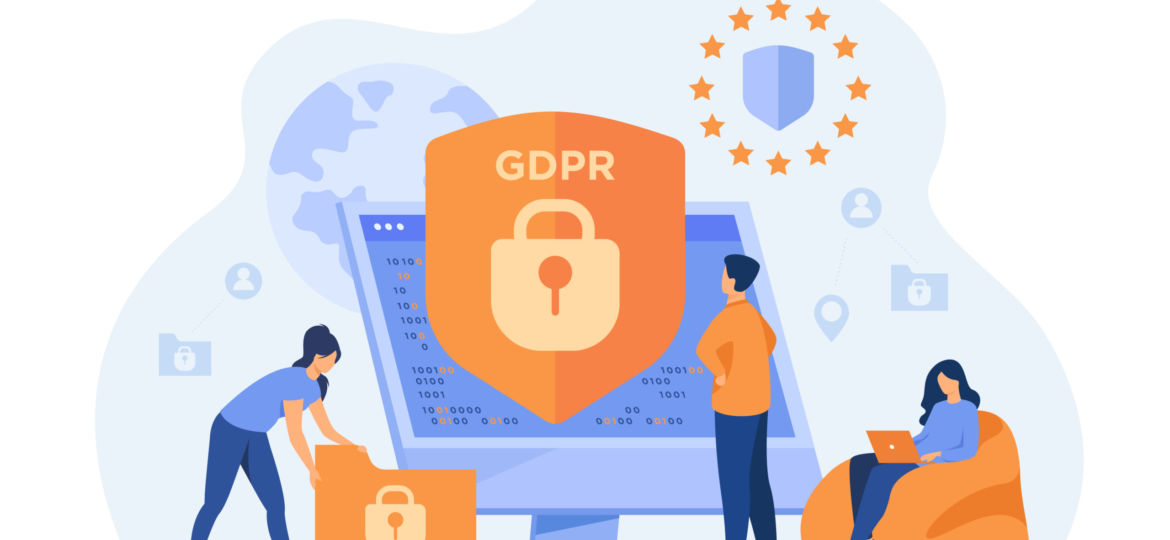
What does GDPR really mean for start-ups and why is it so important?
It’s unlikely that you haven’t heard of the General Data Protection Regulation (GDPR) while doing business in Europe. However, with the regulation having been in place for almost five years, many businesses, especially start-ups, need help understanding its requirements and the importance of complying with its rules.
We all know that in the first few years of business, start-ups face many challenges, and it’s easy to see owners working hard to find new customers while running without adequate cash flow. So it’s understandable that GDPR may not seem like an immediate priority. However, in this article, we explain why it’s essential to comply with the GDPR from the very beginning and build awareness around its core legal requirements. Undoubtedly, GDPR-compliant start-ups can gain a number of benefits both in terms of their intrinsic development and in respect to investors’ evaluation during fundraising.
First, why is data protection so important for start-ups?
The most obvious reason is that meeting legal requirements allows you to avoid fines. GDPR fines can reach up to 20 million EUR or 4% of your annual turnover, whichever is higher.
While start-ups and small businesses certainly face smaller fines if caught, their reputation risks can be much more severe. People are increasingly concerned about privacy and data protection, and having a proper data protection strategy can increase your customers’ trust, loyalty and help building your reputation and image. Your customers will recognize and trust your business if they know that you treat data professionally and securely. In contrast, if they don’t feel that your company has started to address privacy concerns or has suffered a serious data breach, then trust is likely to be shaken.
Finally, since most start-ups seek or depend on external funding, GDPR compliance can be key to attracting more investors, as this demonstrates the viability of your business strategy from a data protection perspective. Today, everyone cares about data and the likelihood of attracting significant investment without having a proper data protection strategy is very low.
Second, what do you need to do?
GDPR compliance does not have to be a burden. If you have a focused strategy, you can plan and accomplish it sooner than you think. To help you get started, we prepared the checklist below with key GDPR requirements that can help you prepare and determine your next steps:
1. Audit your business model
Determine if, when, how, where and for what purpose you collect:
- personal data (information that relates to identified or identifiable person); and
- special categories of data (information on racial or ethnical origin, political opinions, religious belief, data concerning health).
2. Ensure lawfulness and transparency
- Define your legal basis for data processing. Examples include a person’s consent, the performance of contracts (e.g., your agreements with your clients), your legal obligations, vital interests, public tasks or legitimate interest.
- Define and inform individuals (e.g., your clients and companies that you contract with) about data processing before performing it.
- Limit data and data processing only to what is necessary for specified purposes, and inform individuals about these.
- Define and inform about your data storage period or criteria for defining of such a period (e.g., achievement of a purpose for which that data was collected).
3. Consider data protection impact assessment (DPIA) and Data Protection Officer (DPO) appointment
A DPIA allows you to identify risks imposed by your data processing practices. Once known, such risks can be addressed by implementing proper security measures and adjusting your operations. This will make compliance much more effortless.
DPO is a specialist who provides recommendations on data protection and oversees your compliance with the GDPR. You are required to have a DPO only in one of the following cases:
- You are a public body or authority;
- You perform large-scale, regular processing of personal data;
- You process special categories of personal data.
4. Implement security measures
Establish proper controls and protection mechanisms to secure personal data. Such measures shall include both technical and organizational tools. Please, consult our article to know more about practical steps your company may take in this regard.
5. Develop your privacy policy
A privacy policy is a document reflecting details of your data processing practices. It should contain specific information about your identify, contact details, data collected, details of cross-border data transfers, among others. The language of your policy should be concise, plain and clear for your users.
6. Set up consent procedures
If you rely on consent as a legal basis for data processing, ensure that such individuals’ consent is freely given, informed and express. For instance, you are not allowed to use pre-ticked checkboxes for that purpose.
7. Document your GDPR compliance
You are required to demonstrate that you are compliant with the GDPR. Maintain documentation relating to your data processing. This may include a description of technical and organizational security measures, categories of data subjects and personal data, data flow, a list of data processing activities, results of DPIA, details on cross-border data transfers, etc.
8. Report breaches
Don’t forget to notify supervisory authorities about personal data breaches within 72 hours of its detection. To facilitate the notification procedure, you may use available online forms and tools, e.g., this model provided by the Spanish Data Protection Authority.
Conclusion
As data protection is a major subject of concerns and non-compliance may cost a significant amount to your business, it is vital that you assess your data processing practices. Our data protection and privacy team will be happy to assist you with this. If you are interested, schedule a 20-minutes free consultation and connect with our data protection lawyer to help you determine the best strategy for your business needs.



